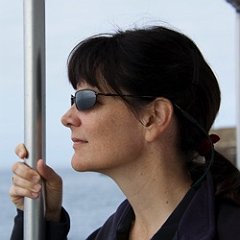For decades, formal methods have offered the promise of software that doesn’t have exploitable bugs. Until recently, however, it hasn’t been possible to verify software of sufficient complexity to be useful. Recently, that situation has changed. SeL4 is an open-source operating system microkernel efficient enough to be used in a wide range of practical applications. It has been proven to be fully functionally correct, ensuring the absence of buffer overflows, null pointer exceptions, use-after-free errors, etc., and to enforce integrity and confidentiality properties. The CompCert Verifying C Compiler maps source C programs to provably equivalent assembly language, ensuring the absence of exploitable bugs in the compiler. A number of factors have enabled this revolution in the formal methods community, including increased processor speed, better infrastructure like the Isabelle/HOL and Coq theorem provers, specialized logics for reasoning about low-level code, increasing levels of automation afforded by tactic languages and SAT/SMT solvers, and the decision to move away from trying to verify existing artifacts and instead focus on co-developing the code and the correctness proof. In this talk I will explore the promise and limitations of current formal methods techniques for producing useful software that provably does not contain exploitable bugs. I will discuss these issues in the context of DARPA’s HACMS program, which had as its goal the creation of high-assurance software for vehicles, including quad-copters, helicopters, and automobiles.
Kathleen Fisher is Professor in the Computer Science Department at Tufts. Previously, she was a Principal Member of the Technical Staff at AT&T Labs Research, a Consulting Faculty Member in the Computer Science Department at Stanford University, and a program manager at DARPA where she started and managed the HACMS and PPAML programs. Kathleen’s research focuses on advancing the theory and practice of programming languages and on applying ideas from the programming language community to the problem of ad hoc data management. The main thrust of her work has been in domain-specific languages to facilitate programming with massive amounts of ad hoc data, including the Hancock system for efficiently building signatures from massive transaction streams and the PADS system for managing ad hoc data. Recently, she has been exploring synergies between machine learning and programming languages and studying how to apply advances in programming languages to the problem of building more secure systems.
Kathleen is an ACM Fellow. She has served as program chair for FOOL, ICFP, CUFP, and OOPSLA and as General Chair for ICFP 2015. Kathleen is past Chair of the ACM Special Interest Group in Programming Languages (SIGPLAN), past Co-Chair of CRA’s Committee on the Status of Women (CRA-W), and a former editor of the Journal of Functional Programming. She is an Associate Editor for TOPLAS.
Tue 6 NovDisplayed time zone: Guadalajara, Mexico City, Monterrey change
17:30 - 18:30 | |||
17:30 60mTalk | Provably Eliminating Exploitable Bugs SPLASH-I Kathleen Fisher Tufts University, USA | ||
